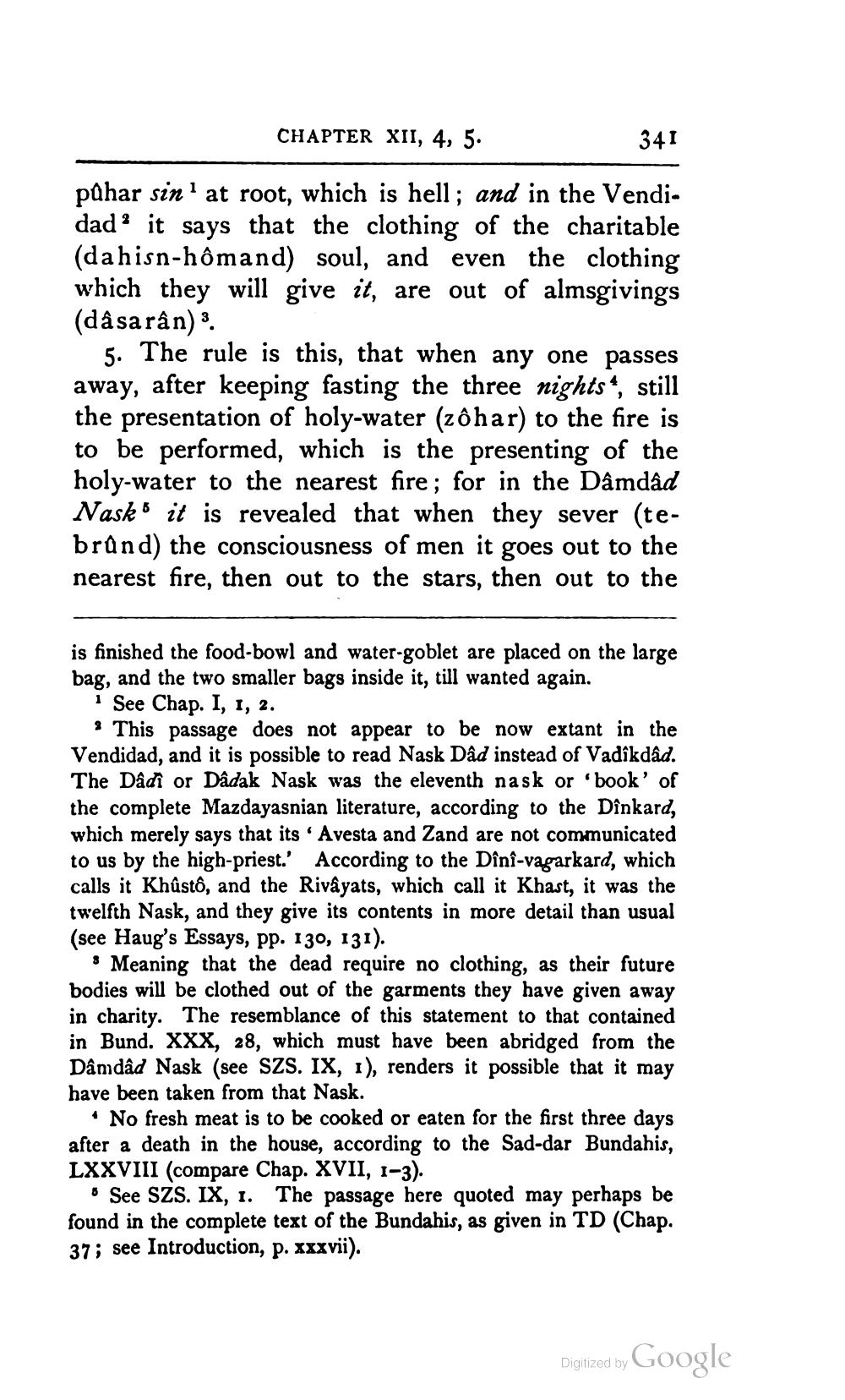________________
CHAPTER XII, 4, 5.
341
pahar sin' at root, which is hell; and in the Vendidad? it says that the clothing of the charitable (da hisn-hômand) soul, and even the clothing which they will give it, are out of almsgivings (disarận) 3.
5. The rule is this, that when any one passes away, after keeping fasting the three nights“, still the presentation of holy-water (zôhar) to the fire is to be performed, which is the presenting of the holy-water to the nearest fire; for in the Dâmdâd Nasko it is revealed that when they sever (tebrand) the consciousness of men it goes out to the nearest fire, then out to the stars, then out to the
is finished the food-bowl and water-goblet are placed on the large bag, and the two smaller bags inside it, till wanted again.
See Chap. I, 1, 2. * This passage does not appear to be now extant in the Vendidad, and it is possible to read Nask Dâd instead of Vadîkdad. The Dâdi or Dâdak Nask was the eleventh nask or 'book' of the complete Mazdayasnian literature, according to the Dînkard, which merely says that its Avesta and Zand are not communicated to us by the high-priest.' According to the Dînî-vagarkard, which calls it Khûsto, and the Rivâyats, which call it Khast, it was the twelfth Nask, and they give its contents in more detail than usual (see Haug's Essays, pp. 130, 131).
Meaning that the dead require no clothing, as their future bodies will be clothed out of the garments they have given away in charity. The resemblance of this statement to that contained in Bund. XXX, 28, which must have been abridged from the Dân dâd Nask (see SZS. IX, 1), renders it possible that it may have been taken from that Nask.
• No fresh meat is to be cooked or eaten for the first three days after a death in the house, according to the Sad-dar Bundahis, LXXVIII (compare Chap. XVII, 1-3).
o See SZS. IX, 1. The passage here quoted may perhaps be found in the complete text of the Bundahis, as given in TD (Chap. 37; see Introduction, p. xxxvii).
Digitized by Google




